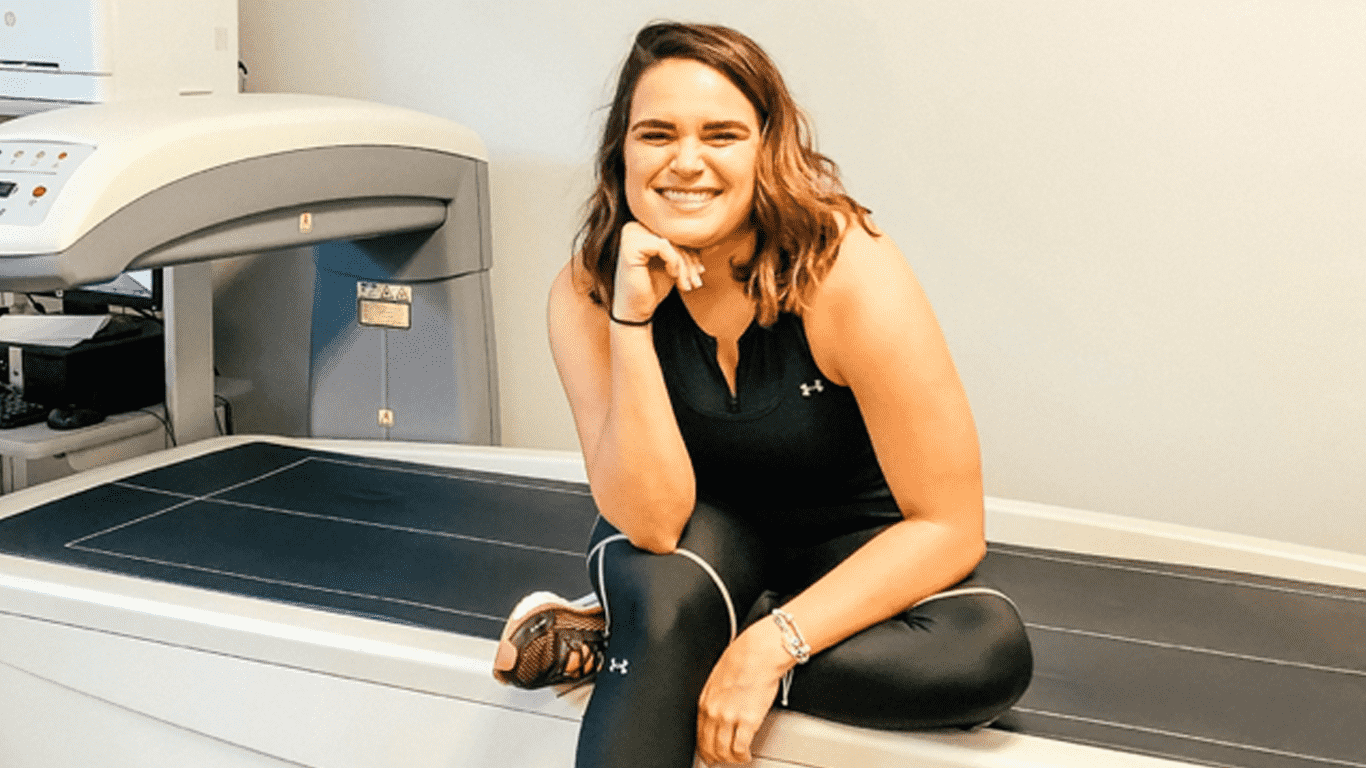A baseline measurement of body composition can speak a lot about individual health and help inform a plan to achieve specific goals in body fat percentage and lean muscle mass. However, regularly measuring body composition through DEXA technology can be even more valuable to track progress and assess the effectiveness of a nutrition and fitness plan. This leads to the million-dollar question many people have: How often should I get a DEXA scan?
The Benefits of Measuring Body Composition
Even for individuals who are just beginning their path towards their health goals, receiving accurate and comprehensive baseline data about their body composition is crucial. Many testing methods can give a glimpse into what the body is truly “made” of, aside from a static number on a scale. The most accurate method – a DEXA scan – instantaneously churns out detailed full-body and regional information on percent body fat and lean muscle mass, and also provides data on bone density and visceral fat. Why are these data important?
Percent Body Fat & Lean Muscle Mass: A simple number on a scale or glimpse in the mirror does not show the full picture of what tissues the body is comprised of. Subcutaneous fat and skeletal muscle have completely different functions metabolically and structurally. Muscle burns more calories at rest than fat, which can contribute to a speedier metabolism. Understanding the body’s overall makeup of fat versus muscle can give insight into overall health and fitness.
Visceral Fat: While subcutaneous fat is mostly associated with obesity as a condition, visceral fat, or the fat found around internal organs, heightens the risk for chronic conditions like diabetes and cardiovascular disease. It’s nearly impossible to measure visceral fat without advanced tools like a DEXA scan, even though this significant data point is one of the most important factors related to internal health.
Bone Density: What sets a DEXA scan apart from many other traditional body composition testing technologies is its ability to measure bone mineral content (or bone density). A DEXA scan gives an accurate reading of bone health based on an age range of aggregate national data. This can inform risk of osteoporosis and allows a nutrition coach to refer an individual to additional medical services, if required.
How Often Should I get Measured?
After a baseline DEXA scan, many ask when they should return for a follow-up measurement and how often should schedule future scans. This largely depends on an individual’s goals and intentions around their health, which are different for everyone. While one person may be preparing for a fitness or physique body competition, another may be hoping to just maintain their body fat and lean muscle mass ratio.
To determine how often you should get a DEXA scan, ask consider the following.
- What do I want to achieve with my body composition?
- When do I want to accomplish my goals by?
- Am I following a new nutrition and/or exercise plan?
For example, if your goals are short-term and relatively drastic (lose 5% body fat in 3 months), it’s smart to schedule a DEXA scan every 2-4 weeks. It takes the body around 4 weeks to show significant change in lean muscle and body fat after a new plan begins. If your goals are more long-term and less-specific, say to generally lose some fat and increase muscle mass over time, or to simply maintain body composition, scanning a few times a year can be enough. Most nutrition coaches recommend their clients measure body composition with a DEXA scan every 4-5 weeks to make sure a plan is working towards their goals, whatever those might be.
From a medical standpoint, it’s important to always have a sense of visceral body fat and bone health to ensure there are no significant medical issues present or know if an intervention in lifestyle behavior modification is required around diet and exercise. Luckily, DEXA scans give detailed information on visceral and subcutaneous fat, lean mass, and bone density. It’s a one-stop shop for health assessment.
DEXA scanning provides concrete data that shows how a program is – or isn’t – working, which informs next steps in a nutrition or fitness plan to yield desired results. A nutrition coach can bring more insight into your specific needs based on your goals, but it’s important to routinely scan to understand how your body composition changes after time spent following a specific plan, or to intervene if body composition has changed.





